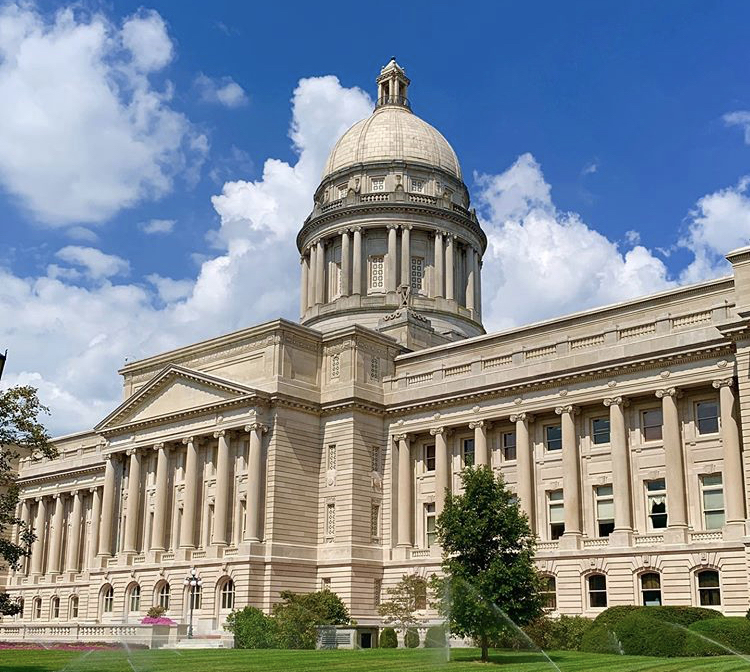Supreme Court extends suspension of in-person court services through May 31
Published 9:07 am Wednesday, April 15, 2020
NEWS RELEASE
FRANKFORT, Ky. — With the COVID-19 state of emergency still in place in Kentucky and nationwide, the Supreme Court today extended the effective date of the order that governs court operations during the pandemic. Administrative Order 2020-22, dated April 14, 2020, replaces in its entirety Administrative Order 2020-16, dated April 1, 2020. The effective date of the order has been extended from May 1 to May 31, 2020.
The Supreme Court order restricts dockets, jury trials and jury service from taking place in-person at court facilities and requires court proceedings to be conducted remotely.
“Thank you for your efforts to observe strict social distancing,” Chief Justice of Kentucky John D. Minton Jr. said today in an email announcement to justices, judges, circuit court clerks and court personnel. “The COVID-19 outbreak is by no means over and we must continue to be vigilant, both professionally and personally, so that we and those we come into contact with can stay safe and well.”
The Supreme Court also issued a new emergency release schedule and emergency pretrial drug testing standards to help protect the health and safety of its criminal justice partners and defendants housed in county jails. Administrative Order 2020-25, dated April 14, 2020, will be in effect through May 31, 2020.
The emergency release schedule temporarily expands the current Administrative Release Program (which expedites the pretrial release of low- to moderate-risk defendants charged with nonviolent, nonsexual misdemeanors) as follows:
- Defendants who are charged with, or arrested for failure to appear on, any nonviolent/nonsexual misdemeanor and/or Class D felony (including defendants arrested on an indictment warrant) and have not been assessed as a high risk for new criminal activity shall be released on recognizance.
- Defendants who are charged with any nonviolent/nonsexual Class D felony, are a high risk for failure to appear, or have previously failed to appear on any nonviolent/nonsexual misdemeanor or Class D felony shall be supervised by Pretrial Services.
- Defendants who are served with a warrant for nonpayment of court costs, fees or fines or with a warrant for failure to appear on a violation shall be cited and released and a show cause hearing shall be set after May 31, 2020.
- Defendants who are arrested for contempt of court on civil matters (excluding any violation of a protective order), nonpayment of child support or nonpayment of restitution shall be released on recognizance and a show cause hearing shall be set after May 31, 2020.
- Defendants not released under this schedule or under the current Administrative Release Program shall be reviewed by a judge within 12 hours of their arrest.
The pretrial drug testing standards provide guidelines to pretrial drug testing providers to reduce the risk of exposure to COVID-19 for both the providers and defendants.
You can find ongoing court updates on the COVID-19 and the Courts webpage.
About the Supreme Court
The Supreme Court is the state court of last resort and the final interpreter of Kentucky law. Seven justices sit on the Supreme Court and all seven justices rule on appeals that come before the court. The justices are elected from seven appellate districts and serve eight-year terms. A chief justice, chosen for a four-year term by fellow justices, is the administrative head of the state’s court system and is responsible for its operation. The Supreme Court may order a ruling or opinion to be published, which means that the ruling becomes the case law governing all similar cases in the future in Kentucky.
Administrative Office of the Courts
The Administrative Office of the Courts in Frankfort is the operations arm for the state court system. The AOC supports the activities of nearly 3,400 court system employees and 406 elected justices, judges and circuit court clerks. As the fiscal agent for the state court system, the AOC executes the Judicial Branch budget.







